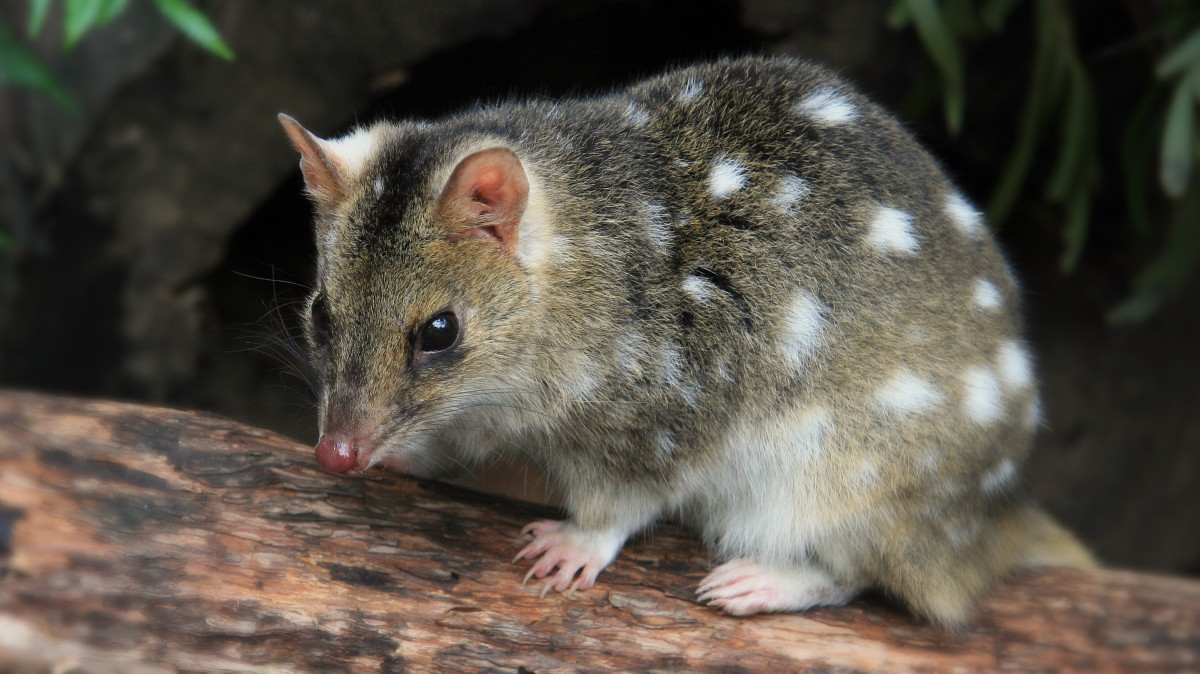Adelaide, 11 April 2019
It must have been ‘hell on earth’ over the past couple of summers for the reintroduced populations of Western Quolls and Brush-tailed Possums in South Australia’s northern Ikara-Flinders Ranges, but despite two years of dry conditions, recent monitoring is showing both native species as resilient and, apparently, thriving, according to the Foundation for Australia’s Most Endangered Species Limited.
The fears turned out to be unfounded with 50 Western Quolls (29 new individuals) and 28 Brush-tailed Possums (8 new individuals) captured over a week of trapping, showing the population has defied expectations in maintaining numbers since 2017. More heartening was the animals’ good health and even mix of males and females.
Good news on native species extinction is rare in Australia these days but the Foundation is reporting continuing success in its partnership with the SA Government to re-establish populations of Western Quolls and Brush-tailed Possums in a region where they were previously extinct. That the populations appear to be doing ‘remarkably well’ has come as a major relief given the harshness of the past two summers.
According to Foundation CEO, Mrs Tracy McNamara, the Foundation and its main partner were worried that the past two summers might take a heavy toll of both populations.
“European settlement has trampled heavily on native species in Australia but the most recent monitoring is exciting and encouraging. We are mindful that just five years after being reintroduced to the region, both populations are still re-establishing themselves but the number caught and checked and in good health is a fantastic pointer that the program, slowly, is achieving its objective.”
The project, which covers the Wilpena Pound and the Ikara-Flinders Rangers area, is a joint effort by the Foundation and the Government of South Australia, with assistance from other vital partners. After extensive planning and meticulous preparation, 92 male and female Quolls were reintroduced over a three- year period into what was once their natural habitat in that region.
“The past five years has demonstrated that soundly planned projects can achieve success and has also brought into sharp focus that robust action to control feral predators is critical. Feral cats and foxes are ferocious killers and, accordingly, a variety of measures through the Government’s Bounceback program has been employed to reduce their numbers with eventual elimination the most desired outcome.
“The latest monitoring figures reflect a Western Quoll population which is both healthy and growing. It’s wonderful news for our donors as it shows that with Government land management and a good, collaborative partnership, threatened species recovery can be successful.
“Is it too soon to call it a success? Perhaps, but the monitoring statistics over the past couple of years are hugely encouraging and give the Foundation and our Government partner heart to continue the work with the long term prospect also of reintroducing the species to the Gammon Ranges. In particular, our donors who have doggedly provided the funds over the past five years will, I believe, feel rewarded for their, the Foundation’s and the SA Government’s persistence,” Mrs McNamara added.
For more information visit www.fame.org.au
For more information or additional comment please contact:
Mrs Tracy McNamara
CEO, Foundation for Australia’s Most Endangered Species Limited
Mobile: + 61 411 446 924
tracy.mcnamara@fame.org.au
